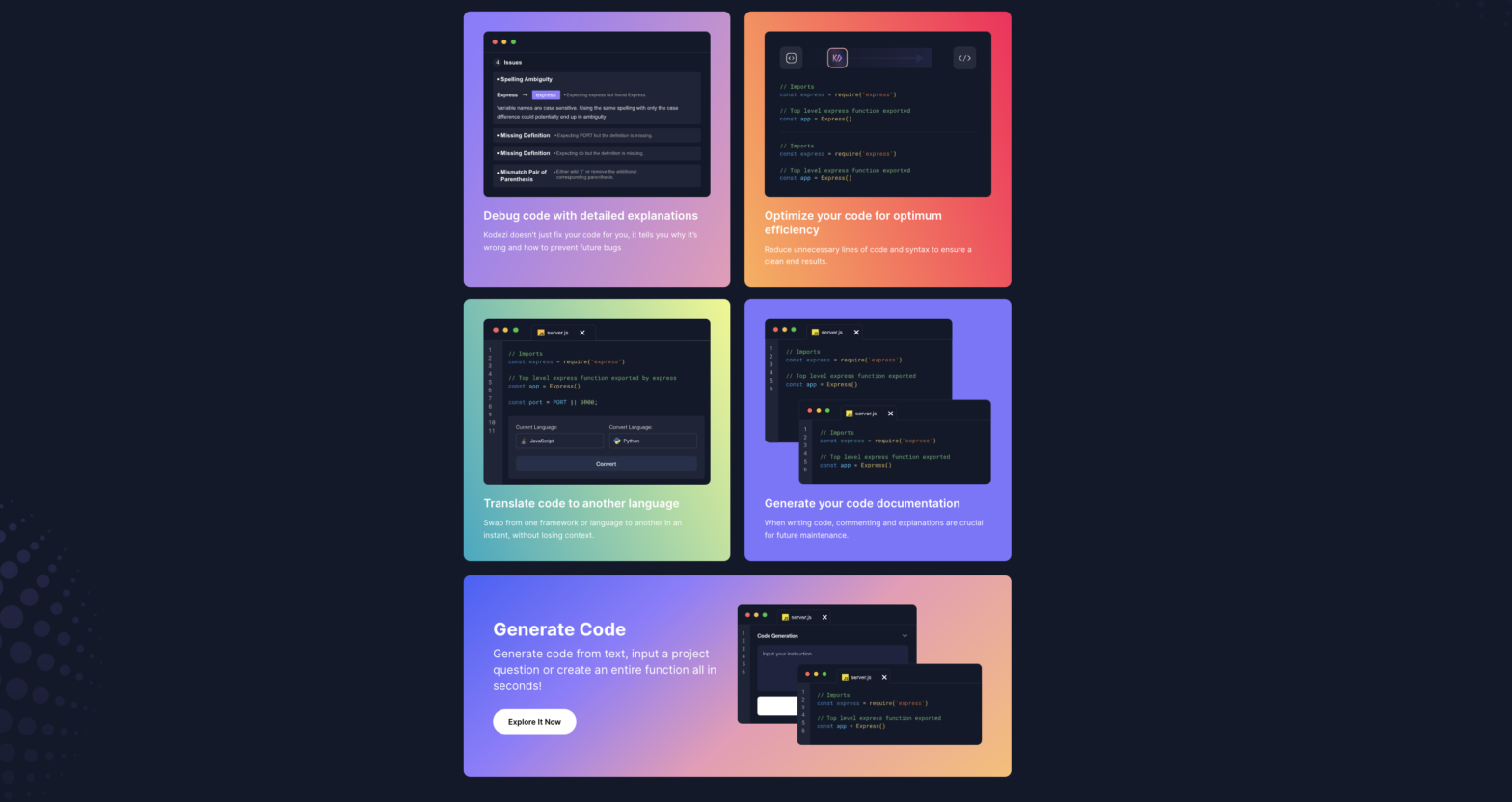March 1, 2023 Tech Roundtable meeting on Zoom
Minutes
AI
The meeting started with a review of how hackers are using ChatGPT. No specific details of how the approach works and perhaps more will be learned for future meeting discussions.
That was followed with a discussion about the FTC warning companies about using AI in their marketing messaging and product claims but not delivering. Most seemed to agree this was premature of the FTC and raises some flags of suspicion.
Kodezi
Lon Hosford did a demonstration of Kodezi. It an AI tool that will write code in 30 or more language, translate code between languages, optimize code, debug code and write documentation for code. Kodezi can be used through a web browser or it is available as a plugin to a few IDE environments that programmers use.
The demo was using the web browser version and free trial. The Roundtable members provided the descriptive request for the code and a Javascript and a C++ version of the code was produced. Software engineers in the group agreed the code was well written.
The the optimization and translation features were tried. The original code generated was Javascript. The translation feature was used to convert to C++. Optimization produced no changes to the code.
The code generated is inserted at the end of this post.
Mini – not Mac, Project Volterra and the Race to ARM
The group also evaluated some videos of development box that has the footprint of a Mac Mini. This is called Project Volterra. It is a developers box handsomely priced at $599 US that is targeted at getting developers to port their Windows and other OS apps to ARM which is the 64 bit processor world. Mac users already ARM level only apps. In the Windows world there seems less need to make a permanent jump to ARM. The general consensus of the group was that most applications for Windows in business do not need that level of processing power where as Mac kinda owns the heavy processing domains of video production.
AI Writing
Ken Powell use AI to write a poem about American Standard and a asked a question. Those were shared by members of the Tech Roundtable.
Chat Links
- Arm CPU Architecture – Arm®?
- Thoughts on Project Volterra (Windows on ARM! Again…)
- Testing “Volterra” — Microsoft’s Windows Dev Kit 2023 ARM PC
- How hackers are using ChatGPT to create malware to target you
- Kodezi
- FTC threatens to go after businesses that overhype AI claims: ‘Our bread and butter’
- Keep your AI claims in check
- Replacing your iPhone’s battery is about to become more expensive

Demo Results
The Javascript program we asked Kodezi to write. Unfortunately Kodezi did not save the written prompt given to write the code. We missed including in the code to output the results. Also we seemed to overlooking saving the commented infused Javascript version after requesting it to generate the code documentation.
var list = [];
for (var i = 0; i < 20; i++) {
list.push(Math.floor(Math.random() * 100));
}
list.sort(function(a, b) {
return a - b;
});
var max = list[list.length - 1];
var min = list[0];
var sum = 0;
for (var i = 0; i < list.length; i++) {
sum += list[i];
}
var mean = sum / list.length;
var mode = {};
for (var i = 0; i < list.length; i++) {
if (mode[list[i]]) {
mode[list[i]]++;
} else {
mode[list[i]] = 1;
}
}
var maxCount = 0;
var maxMode = 0;
for (var key in mode) {
if (mode[key] > maxCount) {
maxCount = mode[key];
maxMode = key;
}
}
var median = list[Math.floor(list.length / 2)];
var variance = 0;
for (var i = 0; i < list.length; i++) {
variance += Math.pow(list[i] - mean, 2);
}
var std = Math.sqrt(variance / list.length);C++ program translated from the Javascript Program
#include <iostream>
#include <vector>
#include <algorithm>
#include <cmath>
using namespace std;
int main() {
/*
Generates a random list of integers and prints the max, min, mean, mode, median, variance, and standard deviation.
Parameters
----------
None
Returns
-------
int
Return status code.
*/
vector<int> list;
for (int i = 0; i < 2; i++) {
list.push_back(rand() % 100);
}
sort(list.begin(), list.end());
int max = list[list.size() - 1];
int min = list[0];
int sum = 0;
for (int i = 0; i < list.size(); i++) {
sum += list[i];
}
int mean = sum / list.size();
vector<int> mode;
for (int i = 0; i < list.size(); i++) {
if (find(mode.begin(), mode.end(), list[i]) != mode.end()) {
mode.push_back(list[i]);
}
}
int maxCount = 0;
int maxMode = 0;
for (int i = 0; i < mode.size(); i++) {
int count = 0;
for (int j = 0; j < list.size(); j++) {
if (mode[i] == list[j]) {
count++;
}
}
if (count > maxCount) {
maxCount = count;
maxMode = mode[i];
}
}
int median = list[list.size() / 2];
int variance = 0;
for (int i = 0; i < list.size(); i++) {
variance += pow(list[i] - mean, 2);
}
int std = sqrt(variance / list.size());
return 0; // Highlight the string.
}
